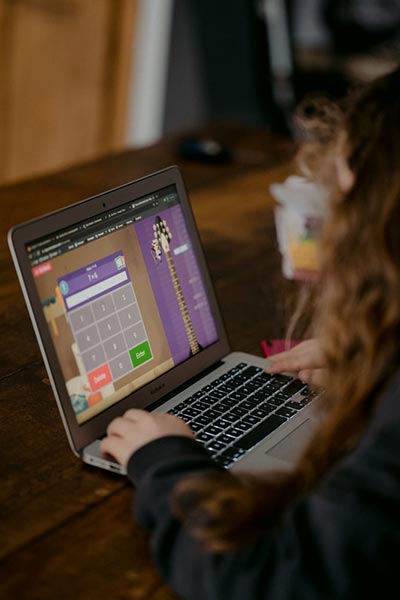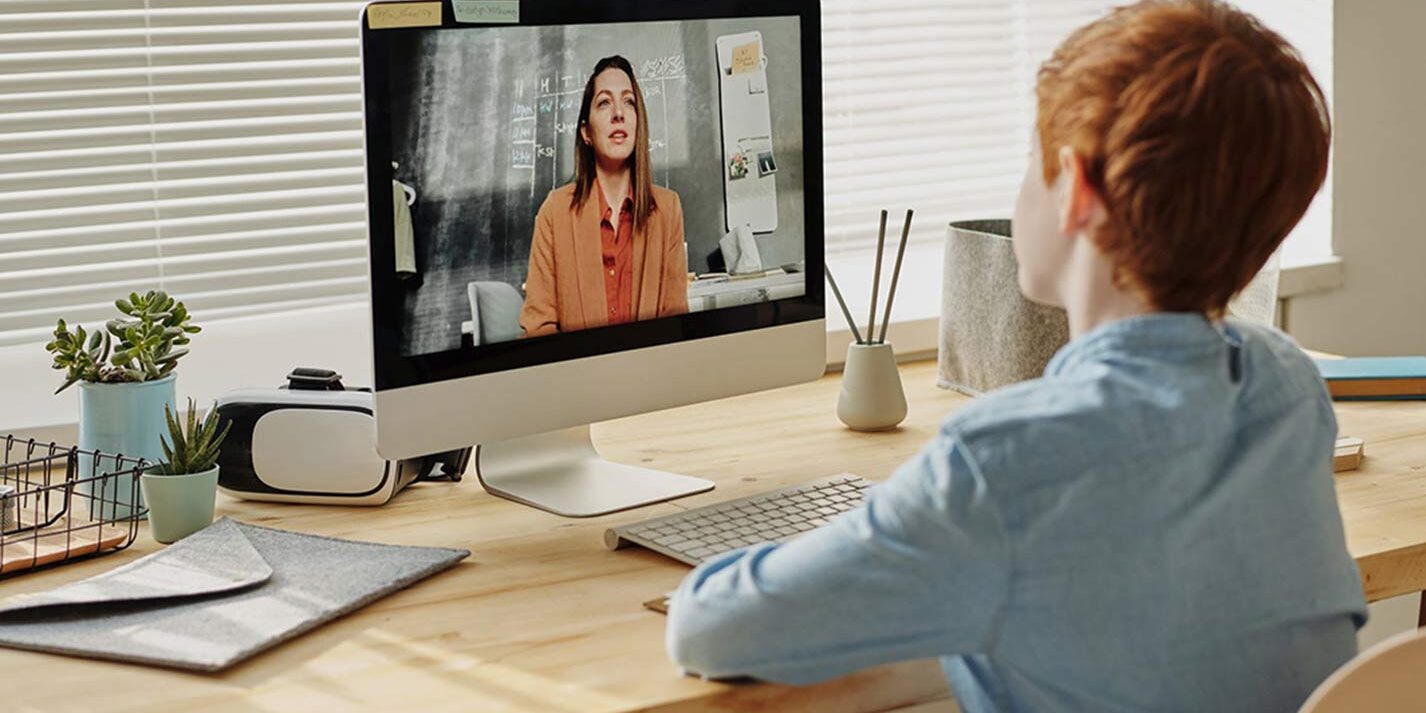 In one of our previous blogs we explored what remote learning is and how it works, whilst here we discuss the advantages of remote learning.
In one of our previous blogs we explored what remote learning is and how it works, whilst here we discuss the advantages of remote learning.
What are the advantages of remote learning?
Studies have shown that remote learning can be of an educational benefit when delivered in an efficient manner, utilising a mixture of synchronous (when the teacher and pupils are all present at the same time), and asynchronous learning (take-away work or individual activities), and when the pupil is able to receive it in a stable and secure environment. Here are 5 advantages below:
1. Remote learning enables pupils to catch up and revisit a topic with ease
When utilising the educational technology available, one of the most obvious benefits of remote learning is the ability for a pupil to catch up or revisit a topic with ease, especially for those with mild learning difficulties such as dyslexia or ADHD.
To be able to pause and rewind lessons means that pupils can take a subject at their own pace, are not overwhelmed with information, and so do not panic if at first they don’t understand something as they have the time to go over it and ask questions separately if needed.
Additionally, remote learning helps solve the issues faced by pupils who are less likely to put their hand up and ask questions in a physical lesson. Many teachers organise short 1:1 calls after or during a lesson, so that they can go over any issues or answer any questions, meaning that children do not fear being overheard asking a question they think the rest of the class might make fun of.
2. Remote learning can help promote flexible timetables
Remote learning allows a flexible timetable, and therefore those pupils who might not suit a rigid, unchanging regime are able to embrace the freedom and the creativity of a more adaptable timetable.
This, of course, depends on age group and the school’s timetabling of lessons, but if given take-away work to do by themselves, a child can decide when he or she goes outside or has their lunch, instead of being forced into a tight schedule.
Flexible timetabling also allows for extra tutoring which, in today’s independent school landscape, is fundamental for some children getting into more selective schools, as well as the case of catch-up after the first lockdown.
Extra tutoring can help pupils regain confidence they might have lost, as well help them understand a topic better as a tutor might have a different method of explaining it. Have a look at the tutoring section of our website for more information on how we might be able to help.
3. Higher accessibility and retention levels for those who do not learn solely through sight or sound using educational technology
 For children who do not learn by merely listening or watching a teacher go through a topic, teachers and educators can make use of other methods like Games-Based learning (GBL) which has been proven to help especially at-risk school groups to learn, as it promotes creativity and exploration.
For children who do not learn by merely listening or watching a teacher go through a topic, teachers and educators can make use of other methods like Games-Based learning (GBL) which has been proven to help especially at-risk school groups to learn, as it promotes creativity and exploration.
Much of the educational technology available today provides educators with the opportunity to make lessons more collaborative and innovative, introducing mini competitions with leader boards, as well as using the multitude of online resources at pupils’ fingertips, all of which have been proven to significantly increase levels of engagement and retention.
4. Enhances knowledge of technology
Remote learning not only helps pupils understand the educational technology available, but when used correctly can also help prepare them for life after school, at university and in the working world.
Although young people tend to be surrounded by screens far more and appear to be more tech-savvy than older generations, this does not mean that they are used to troubleshooting any technical issues they may encounter – which is a valuable skill in the work place, especially in a world that is currently working from home indefinitely.
Understanding meeting technology platforms like Zoom and Teams is also useful, not only promoting community when learning remotely, but also increasing understanding of the platforms available so that when pupils eventually come up against them in the working world, they won’t be phased.
Additionally, testing for schools, university and recruitment is increasingly online, therefore those who are more used to researching and composing work online will arguably perform better than someone who is not used to an online interface.
5. Important skills for the future are learnt through remote learning
As well as teaching technology skills for the future, remote learning also helps to promote certain life skills, especially for older pupils who are set more solitary work.
When remote learning is delivered in an efficient way and received in a secure and stable environment, children stand to learn time management, multi-tasking, responsibility and independent learning skills, all of which are arguably crucial to exam and later life success.
They learn these skills as there is more of an impetus on pupils to log-in when needed, as opposed to being directed into a classroom, and to do the work set without the same ‘hand-holding’ they receive when physically at school.
Gabbitas are always on hand to help with any remote or online learning needs through our dedicated team of tutors and consultants. Please feel free to give us a call on +44 (0) 203 026 7443 or send us an email at info@gabbitas.com to find out more.


